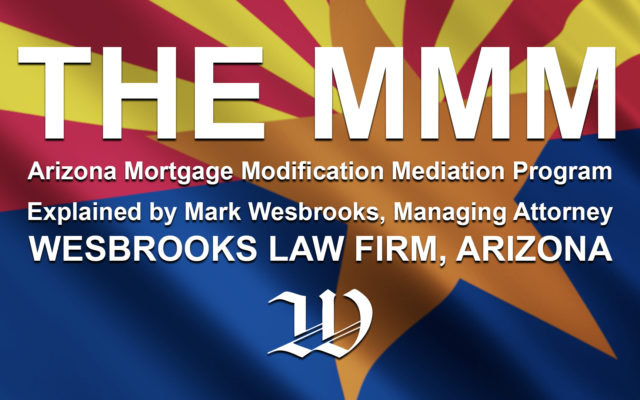

Education is key! Learn the basics on the Fair Debt Collections Practices Act (FDCPA).


What are your rights as a person whom is receiving threatening, abusive or deceptive conduct from a creditor based on the Fair Debt Collections Practices Act? What is prohibited conduct from a debt collector? What are the easy terms of the fair debt collection law?
- Hours for contacting you by phone: The debt collectors may not call outside of the hours of 8:00 am to 9:00 pm your local time
- Failure to end communication after a request has been made: Debt collectors may not communicate with you in any other way short of litigation after receiving written notice that you no longer want to communicate with them. Note: There are certain exceptions to this part of the rule; including advising collection efforts are being terminated or that the debt collector is intending to file a lawsuit against you for the debt.
- Multiple telephone calls, rings or trying to engage a person in a conversation repeatedly or continually: This rule is pretty straight forward, but they shouldn’t annoy, abuse, harass or anything else within this rule when the debt collector tries to call you on your telephone.
- Trying to communicate with you (the consumer) at your place of employment: If this is unacceptable or even prohibited by your employer, the debt collector has to stop trying to contact you at work.
- You have a retained a lawyer: That is right, if you have retained an attorney, a debt collector should gear all of their telephone calls to that attorney or law firm.
- Trying to communicate with you after a request of debt validation has been made: The idea here is that if you have requested in writing for the verification of the debt that you have with this company, you have 30 days. If the creditor tries to solicit this debt again within that 30 day period they are breaking the PDCPA and can be penalized.
- Deceit or misrepresentation: If your debtor tells you that they are someone that they are not, this is a huge no, no. Misrepresenting a debt using deception such as stating they are an attorney or law enforcement officer is clearly illegal.
- Publishing your name or address anywhere: This is pretty self-explanatory, but your debt collector has no right to put you on a “bad debt” list anywhere.
- Requesting unjustified amounts in collection: This includes making demands on any amounts that are not permitted under an applicable contract or under applicable law. That basically means that unless there is a contract with the specific debt you owe, the amount must be within that contract not an inflated number that had been “plucked” from the sky.
- Threatening legal action or arrest: Whether it is not permitted or not actually contemplated. Or… in short the false representation or implication that the documents are in any way in legal process if they are in fact not.
- Abusive, bad or foul language: Bad language is bad language and no one should speak to anyone like that. If this is used as a way to communicate to you about your debt, its not legal!
- Communicating with third parties: Debtors shouldn’t be revealing or even discussing your debts with any third parties unless to your spouse or attorney. Debt collectors may contact your neighbors or co-workers but ONLY to obtain your location information. Some debt collectors (the really bad ones) harass their debtors by contacting multiple neighbors or co-workers explaining to them that they need to reach you urgently. These practices are typically called “block party” or “office party” and are completely unacceptable.
- Contact you via embarrassing media: Unless the debt collector is only using their business name, address, etc they should not be using any other method to try to communicate to you via mail. Forms not acceptable are post cards or using language or symbols other than what is the debt collectors address and business name.
- False information on your credit report: Even the threat to do so in the process of the collection is not acceptable.
What is the required conduct that a debt collector should be adhering to based on the Fair Debt Collections Practices Act? What is acceptable?
- Notify you and identify themselves to you: Each time you are contacted by the debt collector they should inform you of who they are
- Provide you with the name and address of the original collector: This is provided within 30 days of the receipt of a written request.
- Notify you that you have the right to dispute the debt: Whether your paying in part of in full with the debt collector they should give you this option and a timeline.
- They’ll need to provide verification of debt: If you send a written letter to either dispute or request verification within 30 days then the debt collector must mail or cease collection all together. These disputes must also be reported by the creditor to any of the credit bureaus.
- File a lawsuit in a proper venue: If your debt collector chooses to file a lawsuit against your debts it can only be in a place where you live or signed the initial contract. This does however not prevent a debt collector from being sued in other venues for violating the Act.
So there you have it. You now know a little more about the Fair Debt Collections Practices Act or FDCPA. Knowing these rules that the debt collectors can and cannot do will help provide you the necessary tools for help fight back. Sometimes debt collectors break the rules because they feel they will not be turned in, and if you have read or watched some of the recent news stories about this, this idea is not true. Debt collectors can be penalized for harassing their debtors and we as Americans have rights and under the Fair Debt Collections Practices Act or FDCPA we can stay protected.
If you want to stop these harassing phone calls, report a creditor, or need some help negotiating with your debtors feel free to contact us. We would be more than happy to assist you in debt negotiation, how to dispute a debt, help you create cease and desist letter to creditors, filing for Chapter 7, Chapter 11 or Chapter 13 bankruptcy. Whatever your specific need is our firm has qualified attorneys that are eager to help you get back on the right patch to financial freedom.
Want to learn more about your rights or maybe the legal act in all of its entirety?
Fair Debt Collection Practices Act – http://www.ftc.gov/enforcement/rules/rulemaking-regulatory-reform-proceedings/fair-debt-collection-practices-act-text Consumer Information – http://www.consumer.ftc.gov/articles/0149-debt-collection


